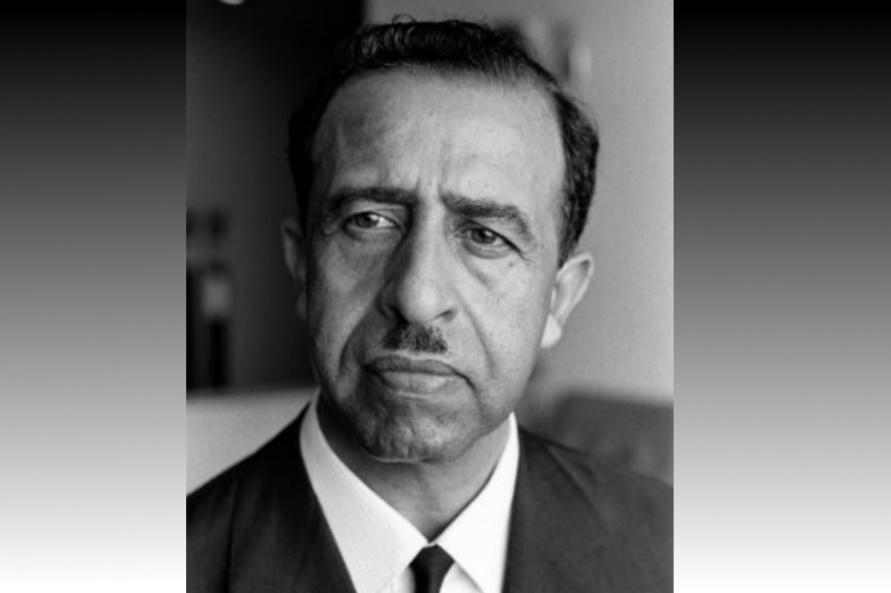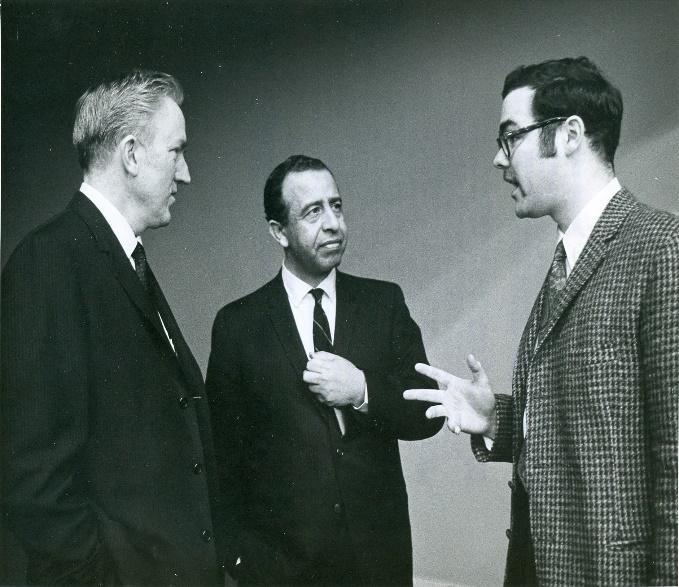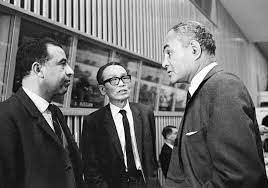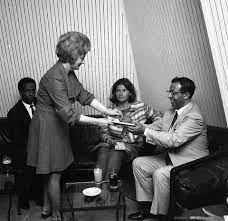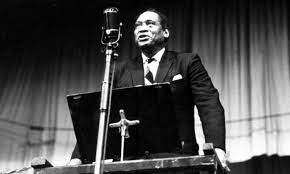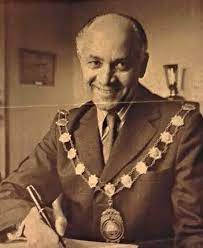-Farah represented Somalia at the United Nations for 25 years. He served as the Undersecretary General from 1979-1990. He led the 1990 UN Mission which oversaw the dismantling of South Africa’s apartheid state; aiding to the release of Nelson Mandela.
22/10/1919
14/05/2018
Wales
Somali and Welsh
1961- Became Somalia’s Ambassador to Ethiopia
1962- Acted as Somalia’s representative to the United Nations Economic Commission for Africa
1964/5- Represented the nation at Council of Ministers meetings of the Organisation of African Unity
1965/72- Permanent Representative of Somalia to the US
1969/72- Chairperson for the UN Special Committee Against Apartheid
1973/78- Assistant Secretary General for Special Political Questions
1973/78- Under Secretary General for Special Political Questions
1990- Headed the UN Mission on ‘Progress made on the Declaration on Apartheid and its Destructive Consequences on South Africa.’
1998- Helped found PaSAGO (Partnership to Strengthen African Grassroots Organisations)
Farah was born and grew up in Barry. His mother Hilda Anderson ran a boarding house while his Somali father Abby Farah was a sailor and entrepreneur. Farah was born in 1919, when racial tensions were high following the Cardiff Race Riots in June 1919.
His parents were amongst a group which founded the multiracial Domino’s Club on Thompson Street. His father was a member of Thompson Street’s Colonial Club Committee and awarded an MBE for his wartime support for international studies.
He attended Gladstone Road School and Barry County Grammar School. At the age of 17 he was sent to Hargeisa in British Somaliland, where he became a clerk and a magistrate with the British Colonial Services. After he fought in World War Two, he went to university and graduated from Exeter and Oxford in civic administration.
1961
After Somalia declared independence in 1960, Farah became Somalia’s Ambassador to Ethiopia in 1961. This was considered perhaps the biggest role for a Somali diplomat due to the continuing dispute between its two neighbours over the Ogaden region.
1962:In 1962 he represented Somalia at the United Nations Economic Commission for Africa.
1965:
Farah had eventually become the permanent UN representative for Somalia, this post lasted seven years. During this period he served as Active Director of Somalia’s Ministry of Foreign Affairs.
1969-1972:
Farah was the Chairperson of the UN Special Committee Against Apartheid, presiding over a special session of the United Nations Security Council in 1972.
1971:
He is credited with arranging the UN’s meeting in Ethiopia’s capital Addis Ababa, which was the first time that the body had met in Africa and somewhere other than New York since 1952. Farah was President of a sixday UN Security Council meeting on ‘Questions relating to Africa’ which covered a number of important issues like resolutions about Namibia’s independence, ongoing regime on Portuguese territories in Africa and criticisms of South Africa’s apartheid regime.
1973-78:
Farah served as an Assistant Secretary General for Special Political Questions
1979:
Farah was appointed as the UN’s Undersecretary General for Political Questions and served in this position until he retired in 1989.
During the end of his career, Farah led the UN Mission on Progress made on the Declaration on Apartheid and its Destructive Consequences on South Africa’ This effectively aided the dismantling of South Africa’s apartheid state. He also met the newly freed Nelson Mandela and the South African President F W de Klerk and completed the work of several decades of campaigning at international non-governmental level.
In 1998, during Farah’s retirement, he helped to start the Partnership to Strengthen African Grassroots Organisations (PaSAGO). He later served as the non-governmental organisation’s Chairperson. He also established an amputee hospital for landmine victims in Somalia. Furthermore, he provided financial support and mentoring to many young people, helping them to pursue an education.
Despite working in several countries throughout his career he never lost his Welsh accent.
Before Farah attended university he had married and divorced twice but met Sheila Farrell, a history teacher and speechwriter during his time in Oxford University. Sheila died in 1997. Farah remarried Hodan Goth in 2001.
Farah had seven children, Lula, Sandra, Hassan, Laila, Marian, Nadia and the late Safia.
Credits
BBC News, ‘Abdulrahim Abby Farah: Tributes to Wales-born Somali diplomat’, BBC News (BBC News, revised 15 May 2018) < https://www.bbc.co.uk/news/uk-wales-south-east-wales-44122866 > [10 February 2022]
The Anti Tribalism Movement, ‘Great Black Briton: A CELEBRATION OF BLACK HISTORY IN THE UK’, Theatm.org (Theatm.org, revised 30 September) < https://theatm.org/wp-content/uploads/2020/09/Great-Black-Briton-2020.pdf > [10 February 2022]
Simon Haynes, ‘Abdulrahi, Abby Farah obituary’, The Guardian (The guardian, revised 14 June 2018) <https://www.theguardian.com/world/2018/jun/14/abdulrahim-abby-farah-obituary > [10 February 2022]
